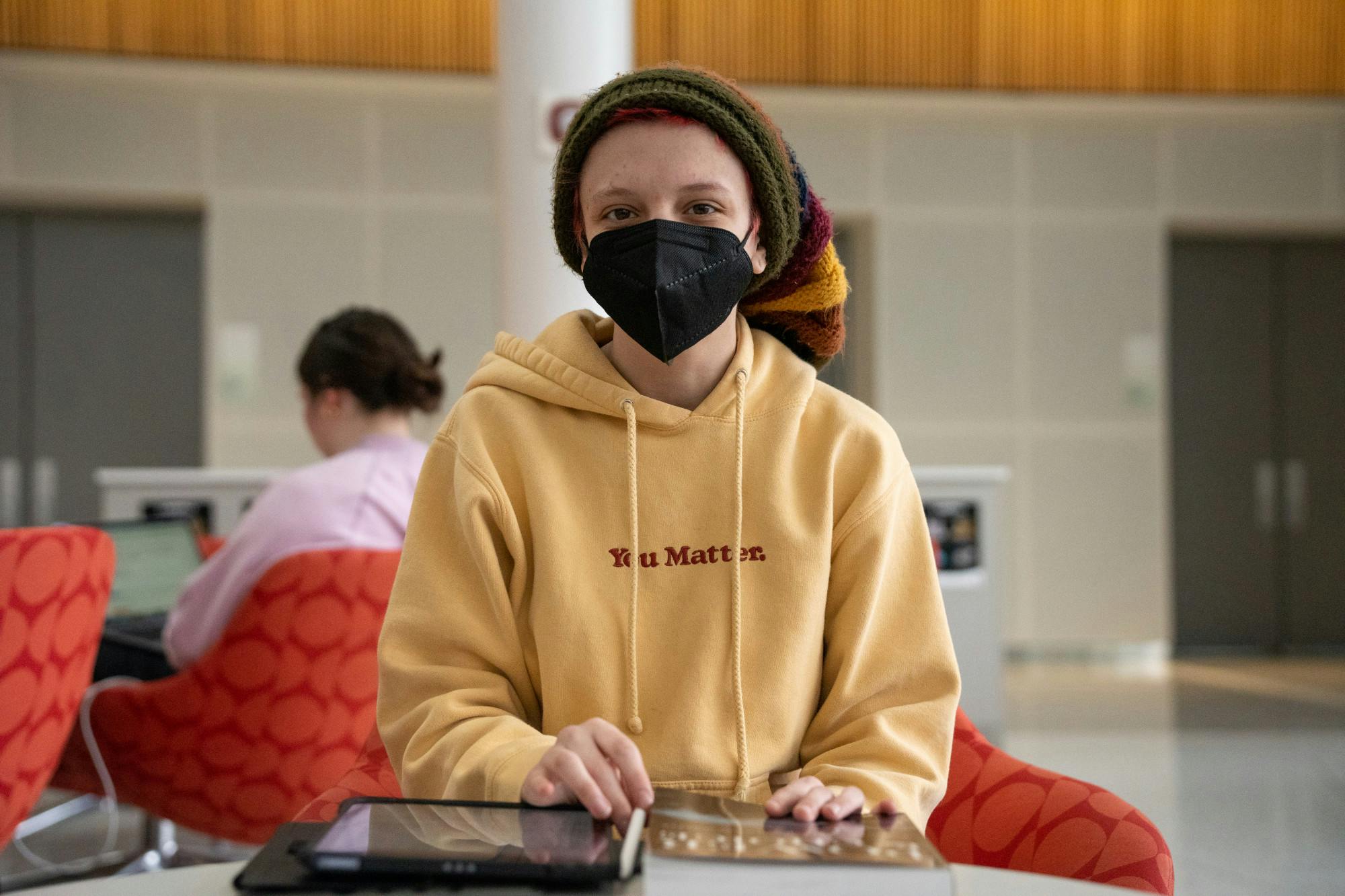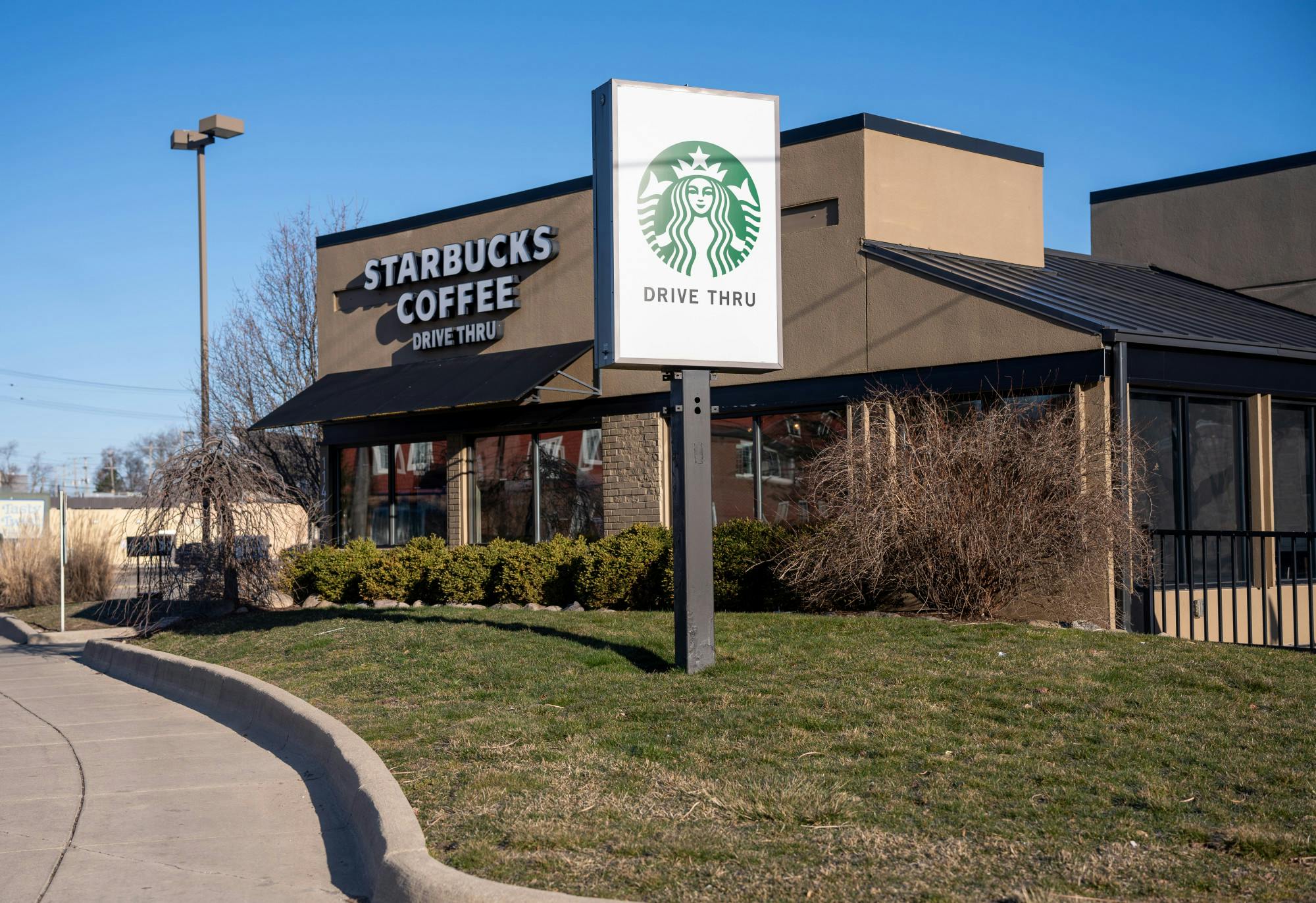Workers at the Grand River Avenue and Stoddard Starbucks in East Lansing said their hours have been reduced in recent months in efforts by the corporation to increase the store’s turnover rate and, ultimately, impact its status as a union store.
In March 2022, workers at the store announced they would be filing for a union election. Later, in June, the workers elected to be represented by Starbucks Workers United with a 19-0 vote.
Human development and family studies senior Lydia Rutkowski started working at the Stoddard Starbucks before the union election. Since then, they said the workers’ hours have decreased, leaving the store short-staffed and some workers turning to other work.
“As a worker that was there before the union, I’ve seen the decrease in hours, a decrease in staffing,” Rutkowski said. “We don’t have as many people on the floor as a different store just because corporate isn’t giving us those hours to use.”
Political science sophomore Cora Fontana said they used to work 16 to 22 hours a week at the Grand River Starbucks but now is consistently scheduled for just 5-10 hours. They described the store’s staffing situation as “tight.”
“Most of the time that we’re working, we only have three to four people on the floor for a majority of the shifts,” Fontana said.

In an email statement, a Starbucks spokesperson said partner work schedules are produced three weeks in advance, taking into account the operational demands of each store in addition to the availability of each partner.
“Partner work schedules are published on a regular, rolling basis three-weeks in advance and are built based on recorded partner availability and the unique operational needs of each store,” a spokesperson said in the email. “To provide additional schedule flexibility for our partners, we also provide partners the ability to view and pick-up additional shifts at their home store and other stores within their district.”
Political science pre-law senior Caleb Christensen, another barista at the Stoddard Starbucks, said they believe the corporation is attempting to create a “revolving door” for unionized stores, which adds a layer of difficulty for union advocates and organizers.
“When new people come in, you have to convince them that the union is a good idea,” Christensen said. “Three more people are leaving by the time you’ve convinced one.”

Christensen and Rutkowski said many workers already have a foot out of the door, either waiting for the store to dissolve or for another job opportunity.
“We’re at the point of really being defeated by this,” Rutkowski said.
Rutkowski, who left MSU to finish their final year online at Arizona State University (all Starbucks workers are eligible for free tuition for online enrollment at ASU), said they couldn’t afford to pay rent for the last two months due to their lack of hours.
Living paycheck-to-paycheck, Rutkowski said, has taken a toll on their personal life because they can’t afford to spend their income for personal enjoyment.
Likewise, Christensen said they've struggled financially due to their reduced hours.
“I don’t make enough money to afford both being in college and going to class every day and then working the hours that I could be working,” Christensen said.
Rutkowski said in a job measured by performance, decreased hours for workers have created a counterproductive system of under-staffing and high demand.
“All of us have our availability, and all of us are under hours,” Rutkowski. “We all don’t have the hours that we want, but anytime that we’re on the floor, we also don’t have the staffing that we want.”
Christensen said the store’s understaffing impacts its patrons who are primarily MSU students. They said waiting 30 minutes for a cup of coffee is “outrageous” and the opposite of what students need in times of stress.
“It really hurts the students, especially at a time like this when we need to be able to support students instead of making their lives more difficult or adding just another thing on top of their daily stressors,” Christensen said.
Starbucks’ union-busting efforts have gone beyond cutting hours, Rutkowski said.
Since the union election, Rutkowski said Starbucks has made desired changes to many stores but not unionized locations. For example, they said credit card tipping, which was advocated for by the union, was implemented in other locations but not the Stoddard Starbucks.
“Starbucks noticed what we wanted to do for our union and decided to give that to other partners,” Rutkowski said. “We weren’t able to get those benefits, but other partners were.”
Christensen and Rutkowski agree that such actions seem deliberate and targeted at unionized stores.
“It’s really been debilitating to see all of this effort put into the corporate stores so that they won’t want to unionize,” Rutkowski said. “It’s just really frustrating to see, over and over, that they really don’t care about us because we’re a union store, and they actually want a high turnover rate.”
Fontana said they and their co-workers often feel not just stressed on the clock but guilty and high-strung.
“A lot of us are really on edge at all times,” Fontana said. “It feels like if one thing goes wrong, it has a domino effect.”
Rutkowski said the lack of staff in a given shift has negatively affected job performance and store efficiency, leaving workers exhausted and demoralized.
“Why are we putting in all this effort on the floor when we’re not even getting enough hours to make ends meet?” Rutkowski said.







